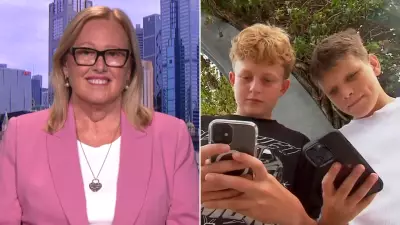
Thousands of Australian teenagers are experiencing sudden digital isolation and mounting frustration as Meta begins disabling Facebook Messenger accounts for users under 16. The sweeping change, implemented without warning, has left young people cut off from their primary communication networks and support systems.
The Sudden Digital Disconnection
Meta's decision to remove Messenger access for under-16s has created what many describe as a digital crisis for Australian youth. The change affects an estimated 250,000 young Australians who relied on the platform for daily communication with friends, family, and school networks.
Sixteen-year-old Adelaide student Paris McNeil represents the voice of countless affected teens. "It's like they've cut the cord to our social lives," she explains. "One day we could talk to our friends, coordinate schoolwork, and stay connected. The next day, everything was gone."
The timing couldn't be worse for many students, with the changes occurring during critical school periods when group projects and study support are most needed. Parents report their children feeling genuinely distressed about being separated from their peer networks.
Mental Health Concerns Mount
Mental health experts are raising serious concerns about the psychological impact of this sudden digital exclusion. Dr. Sarah Johnson, a youth mental health specialist, warns that the timing coincides with peak stress periods for students preparing for exams and major assignments.
"We're seeing increased anxiety and feelings of isolation among teenagers who've lost their primary communication tool," Dr. Johnson notes. "For many young people, these digital spaces aren't just about socializing—they're essential support networks during stressful academic periods."
The situation highlights the complex relationship between young people and digital platforms. While concerns about online safety are valid, the abrupt removal of communication tools without adequate alternatives creates its own set of problems.
Searching for Solutions
As families scramble to find alternatives, several issues have emerged. Many alternative messaging platforms have age restrictions similar to Meta's, while others lack the security features that parents prefer. This leaves families in a difficult position between maintaining communication and ensuring safety.
Some schools have begun discussing the implementation of approved communication platforms for student use, but these solutions take time to develop and implement. In the meantime, students like Paris continue to advocate for more considered approaches to digital safety.
"We understand the need for safety measures," Paris says, "but cutting us off completely isn't the answer. There has to be a better way that keeps us safe while still allowing us to connect with our friends and support each other."
The situation has sparked broader conversations about digital citizenship and how to better involve young people in decisions that directly affect their online experiences and mental wellbeing.





